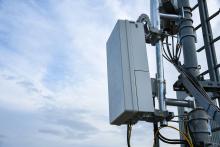It's tempting to cast the emergence of wireless broadband simply as a horse race in which one technology will win and the others will lose. However, it's a far more complex issue than that for IT managers who support mobile workers.
Wireless broadband is just entering the early stages of becoming a viable technology. In the long term, that's great news since it will be faster than most cellular data networks and more ubiquitous than Wi-Fi hotspots. However, in the short-term - and by that I mean the next couple of years - the emergence of wireless broadband will muddy the waters for IT professionals.
The "horse race" question is important since enterprises will want to invest in successful technologies. Currently, the leading wireless broadband technologies in the U.S. are 802.16 -- WiMAX -- and 802.20, which Nextel is trialing. Other wireless broadband technologies such as UMTS TDD also are lurking in the background.
But an equally compelling - and currently imponderable - question is what happens if multiple standards survive. Will that lead to fragmented service? For instance, what if Nextel doesn't offer wireless broadband in all the markets it serves. If your employees travel to, say, Des Moines, will they have to find another form of access? And even if wireless broadband is ubiquitous in the U.S., what about access for those who travel overseas?
The problem is that there's already plenty of pressure on IT shops to provide mobile access, but it will take years for the dust to settle for one key mobile technology, wireless broadband.








